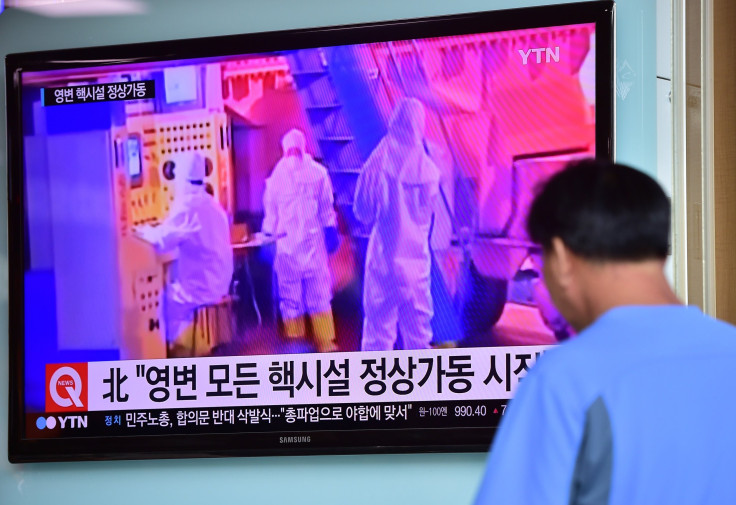IAEA Finds Increased Activity At North Korean Nuclear Reactor While Kim Jong Un Calls For More Nuclear Arsenal

The International Atomic Energy Agency (IAEA) said Tuesday it has noticed an increased amount of activity at North Korea’s main nuclear site. The warning comes at a time when North Korean leader Kim Jong Un has called on the country to increase its nuclear capabilities even as Pyongyang faces sanctions, including those from the U.S., over its nuclear program.
"We have observed the discharge of water, transportation of equipment to the facility, and some indications of operations of the 5-megawatt reactor," IAEA Director-General Yukiya Amano said, during a meeting with top South Korean officials, including Foreign Minister Yun Byung-se and nuclear envoy Hwang Joon-kook, South Korea’s official Yonhap News Agency reported.
Amano cited the satellite images of the Yongbyon nuclear complex, North Korea's main nuclear facility, and asked Pyongyang to abide by its international obligations under the U.N. resolutions and agreements.
He added that his organization’s job was to only verify the implementation of a nuclear deal but "not to be politically involved."
Meanwhile, Kim asked the country to boost its nuclear arsenal and war preparations in a piece published Tuesday in Rodong Sinmun, the official newspaper of the Workers' Party of Korea. The special essay was published to mark the 70th anniversary of the party’s founding on Oct. 10, Yonhap reported.
The essay stated, according to Yonhap, that North Korea "should produce more powerful cutting-edge arms of our kind and tirelessly strengthen self-defense nuclear deterrence while rigorously making war-fighting preparations involving the entire population." It also called for the "thorough consolidation of the monolithic leadership," for more internal unity and socialism in the country.
North Korea has, on several occasions, threatened to launch nuclear attacks against the U.S. and other countries for "their reckless hostile policy" toward Pyongyang, with its latest statement being issued just last month.
South Korea quickly responded to the allegations, saying: "A possible missile launch or nuclear test by North Korea are serious provocations and military threats."
"Seoul will sternly respond to them by collaborating with the international community. We are closely working together with the United States on the matter."
Late last month, South Korean President Park Geun-hye, speaking at the U.N. General Assembly, urged the international community to address the North’s nuclear arsenal.
"Resolving the North Korean nuclear issue should be accorded the highest priority if we are to uphold the integrity of the international nuclear nonproliferation regime and live up to the aspirations of humanity for a world without nuclear weapons," Park said, adding: "Last July, the Iran nuclear deal was reached. Now the international community should focus its efforts on resolving the North Korean nuclear issue -- the last remaining nonproliferation challenge."
© Copyright IBTimes 2025. All rights reserved.






















